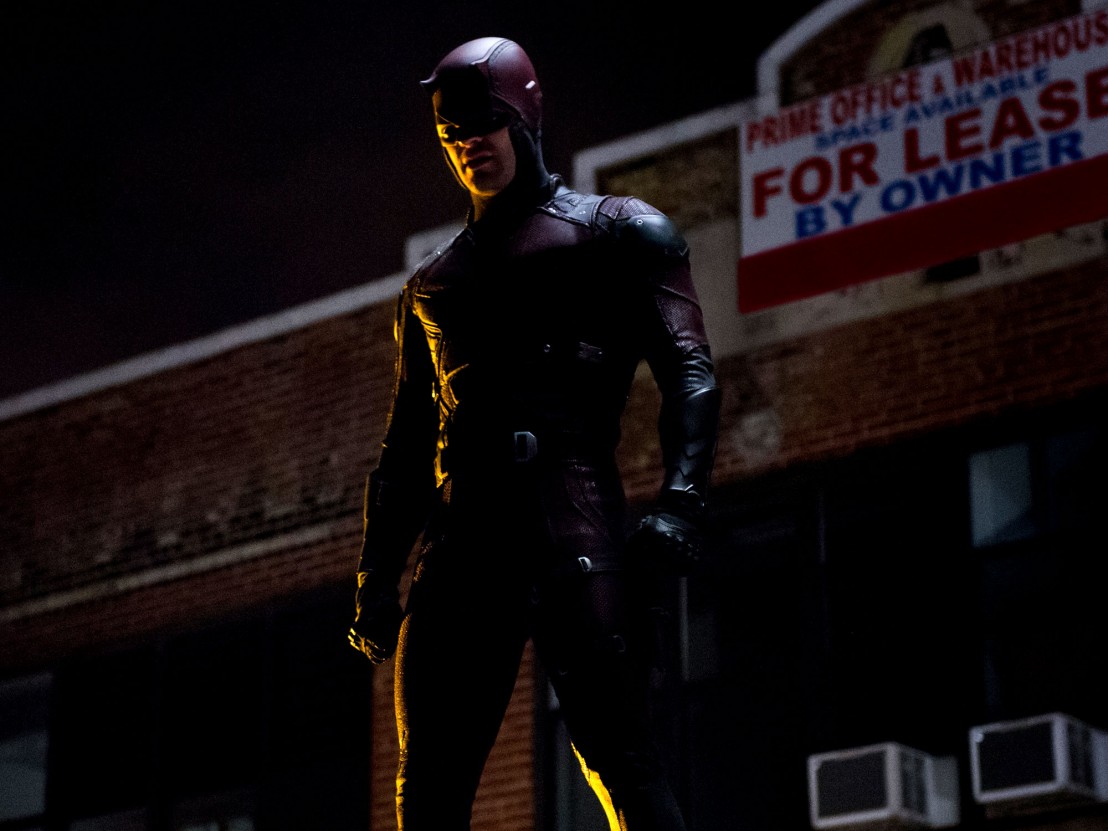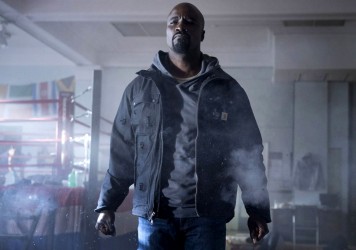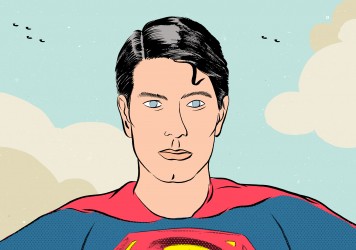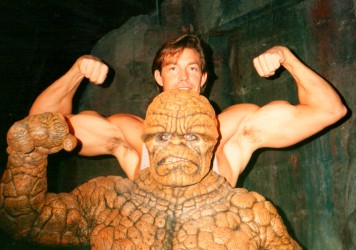
At the southwest corner of West 57th Street in Hell’s Kitchen, New York, stands a monument to the perniciousness of gentrification – The Windermere. Once a handsome 19th century apartment complex housing the working and creative class of the city, an aggressive wave of gentrification encouraged the building’s owner to terrorise and harass his tenants away. Today, The Windermere is set to become a luxury hotel.
This is a familiar scenario to most city dwellers. It may also read familiar to viewers of Marvel’s Daredevil, the Netflix series about a blind lawyer operating locally as a nocturnal superhero in – where else? – gentrified Hell’s Kitchen. Matt Murdoch aka Daredevil (Charlie Cox) takes on a multi-national crime syndicate seeking to redevelop Hell’s Kitchen in their own totalised image. Masterminded by Wilson Fisk (Vincent D’Onofrio), a man with a utopian vision of making Hell’s Kitchen “somewhere beautiful” by any ugly means, he undertakes a Windermere-inspired process of social cleansing and property redevelopment.
Historically speaking, our filmic representations of this issue have been severely inadequate, even corroborative. When a bohemian Hugh Grant saunters his way through a homogenised white Notting Hill, despite the areas rich Afro-Caribbean culture, it’s racist by omission. Cinema audiences are merely tourists witnessing a gentrified quasi-society made clean, pretty and corporate as some desire it to be. So let’s not undervalue popular entertainment engaging with social anxieties. Ask any working New Yorker, or Londoner, what the prevalent threat to their livelihoods is and it isn’t extra-terrestrial invasions, it’s gentrification. Marvel’s Daredevil and Luke Cage depict this threat as violent class conflict like Marx foresaw it. Not since Superman debuted during the Great Depression have our superheroes held such strong socialist values, defending the 99 per cent against the one per cent.
Matt Murdoch uses his arcane law knowledge to defend the down-trodden against plutocracy, and the bulletproof Luke Cage shields Harlem from the infection of white-collar vice. Rather than function as private superheroes à la The Avengers, they belong to the proletariat. They labour and integrate themselves into their community. Murdoch and his cohorts, Foggy Nelson (Elden Henson) and Karen Page (Deborah Ann Woll), work all-nighters and spend their downtime in mom-and-pop restaurants or at the community dive, Josie’s Bar. “It’s a shit hole,” Foggy says, “but it’s our shit hole.”
He explains that the city tried to shut Josie’s Bar a few times, only for his own legal expertise to prevent it (if only Islington’s Fabric nightclub had Murdoch and Nelson Law Office). In an earlier episode, while viewing potential office spaces, Foggy bemoans the view of cranes and scaffolding, to which the retail agent retorts, “Hell’s Kitchen is on the rebound, Mr Nelson. In 18 months you won’t be able to run a broom closet at this price point.” Words like ‘rebound’, ‘regeneration’ and ‘revitalise’ are all too familiar to those on the gentrification hitlist.
In another telling scene, villain Fisk is dining with his date, Vanessa (Ayelet Zurer), a bourgeois art gallery employee. Discussing Hell’s Kitchen’s rapid transformation, Vanessa tells Fisk, “it would be a shame to see all the character scrubbed away.” Vanessa is the essence of Pulp’s song ‘Common People’ – class voyeur and tourist, attempting to latch onto the vitality of working communities, while simultaneously destroying them via a penchant for overpriced coffee. Fisk responds to her statement with “you didn’t grow up here, did you?” The opening titles of Daredevil establish apprehensions about free-market rapid development; entire cityscapes literally construct themselves from blood, dripping with human cost.
Likewise, when we meet Luke Cage, our power-man is sweeping the floor of Pop’s Barber’s and washing plates at the resident nightclub in order to make his rent. “It’s called work,” he says. He’s not Tony Stark, he’s one of us. But in a society where not being white is politically significant, Cage celebrates a proud and unapologetic hope for black cultural identity in a changing city milieu. Here is an empowering black man in a hoodie impervious to trigger-happy officers.
While Fisk wanted condominiums “no one can afford,” the dastardly plan of Luke Cage’s nemesis, corrupt politician Mariah Dillard (Alfre Woodard), is to embezzle funds for… social housing? “This affordable housing initiative is going to change things, man,” she states. Sounds like left-wing policy rather than a criminal mastermind’s plot. But her aspirations become apparent as she stumbles from utopian designs into demagogue. Dillard’s campaign logo, “Keep Harlem Black,” exploits fear of gentrification in black communities; something director Spike Lee recently termed, ‘Christopher Columbus Syndrome’. In 1950, 98 per cent of residents in Harlem were African-American. By 2008, that dropped to 40 per cent. So as invigorating as it is to see a majority black cast, this is already an anachronism.
Influenced by vibrant depictions of the city in noir and Blaxploitation, it’s impossible not to admire the communities Netflix’s Marvel series depict. When Matt talks about “saving Hell’s Kitchen” and Luke “saving Harlem”, this doesn’t strike as cheesy sentiment because we recognise the reality in the fiction. As Bob Dylan put it, “There’s a battle outside and it’s raging.” It’s less literal than dramatic superhero conflict, but the notion that the soul of a city is under threat is a resonant and atypically subversive one. Like the V for Vendetta mask, expect to see bullet-ridden hoodies as potent symbols of the importance and unfortunate fragility of community life and culture.
Published 10 Oct 2016

While Marvel’s Luke Cage is tackling race issues head on, progress is much slower in the studio’s cinematic universe.

By Mark Asch
Rejecting the physics of an ever-expanding comic book universe, Bryan Singer’s Superman reboot has passed the test of time.

By Tom Bond
Roger Corman’s unreleased 1994 film The Fantastic Four was doomed from the start.